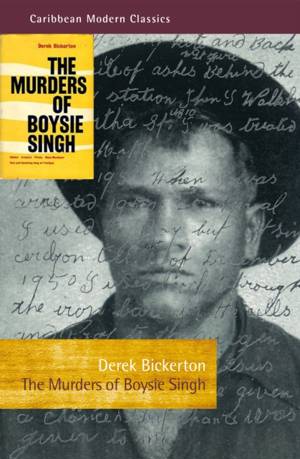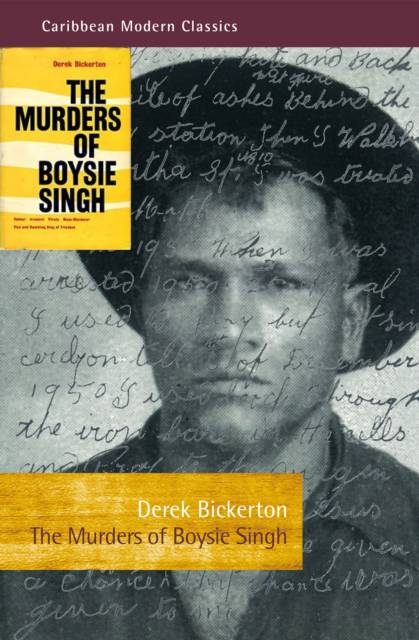
- Afhalen na 1 uur in een winkel met voorraad
- Gratis thuislevering in België vanaf € 30
- Ruim aanbod met 7 miljoen producten
- Afhalen na 1 uur in een winkel met voorraad
- Gratis thuislevering in België vanaf € 30
- Ruim aanbod met 7 miljoen producten
Zoeken
€ 28,95
+ 57 punten
Omschrijving
The Murders of Boysie Singh, first published in 1962, is a classic for several reasons. It tells the true but almost unbelievable story of a Trinidadian badjohn who in the 1940s and 1950s was a much reported celebrity of the criminal and legal world. Believed to have committed scores of murders in his guise as a pirate who dumped would-be migrants from Trinidad to Venezuela overboard to the sharks, he was hanged for just one proven crime, a murder he in fact may not have done, and for which no body was found. The story that Derek Bickerton tells is a classic because it both focuses on themes that remain pertinent to Trinidadian culture and reminds the reader that current alarms about crime and an escalating murder rate are very far from new. Bickerton recognizes in Boysie Singh a particularly Trinidadian villain, one who for several decades evaded the law in part because of a popular ambivalence about crime. What was seen as "smartness" in challenging a deeply hierarchical colonial society was often admired, even if its victims were not from the elite.
Specificaties
Betrokkenen
- Auteur(s):
- Uitgeverij:
Inhoud
- Aantal bladzijden:
- 180
- Taal:
- Engels
- Reeks:
Eigenschappen
- Productcode (EAN):
- 9781845234492
- Verschijningsdatum:
- 5/09/2019
- Uitvoering:
- Paperback
- Formaat:
- Trade paperback (VS)
- Afmetingen:
- 159 mm x 235 mm
- Gewicht:
- 399 g

Alleen bij Standaard Boekhandel
+ 57 punten op je klantenkaart van Standaard Boekhandel
Beoordelingen
We publiceren alleen reviews die voldoen aan de voorwaarden voor reviews. Bekijk onze voorwaarden voor reviews.








